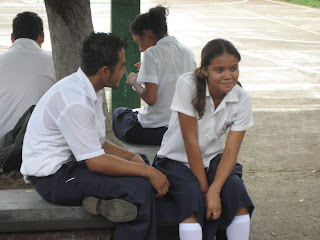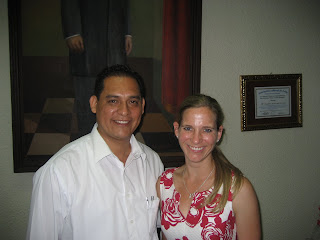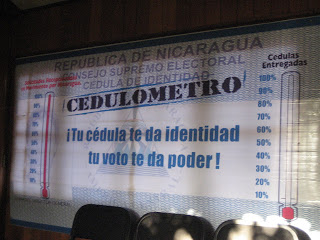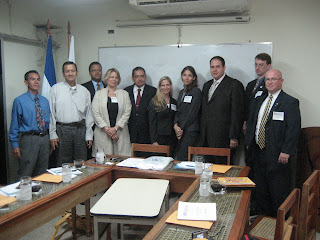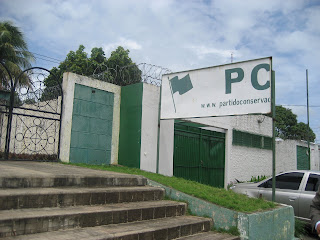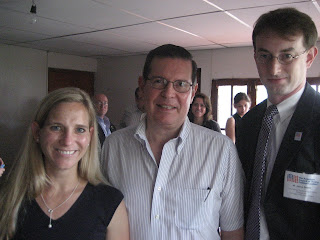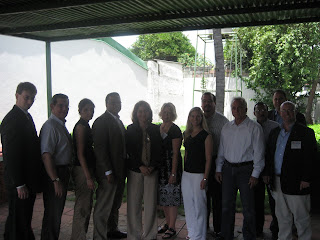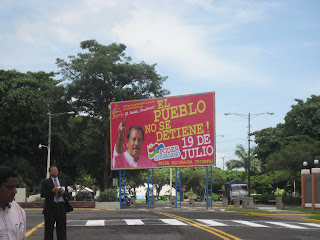
Jamileth del S. Bonilla, President of International Affairs Commission of the National Assembly and member of the Education Commission, met with our delegation on Tuesday morning. Bonilla provided us with an overview of the National Assembly and gave us a tour of the assembly floor. There are 92 members in the National Assembly that serve five year terms. Members are elected by proportional representation plus the previous president and runner up in the previous presidential election are granted seats.
Pictured left to right: Joe, Marianne, Christy, Marshand, Jamileth del S. Bonilla, Valerie, Josh, Adam.

The National Assembly is responsible for enacting laws, approving the budget, electing supreme court judges, and providing checks on the president. While these are the official duties of the National Assembly, and have been sine 1995, there is skepticism as the whether they have this power. In our meeting we learned that political government is secretive, and the National Assembly and citizens are interested in creating more transparency in the process. The elections also need to be more transparent and the process for registering to vote needs to be easier and more accessible to citizens.
Pictured: Valerie and Christy on the balcony of the National Assembly meeting hall.

We also discussed education and learned that the liberal part is not wholly supportive of primary education and that Daniel Ortega runs education. The concern about education is evident in the National Assembly and political parties we have met, but there is not a policy initiative to advance the education agenda. One thing that needs to be done in Nicaragua is to revise the education curriculum to not include propaganda. We were given an example of a simple math problem with pictures in a national text book: If I have one gun and you have two guns, how many guns do we have total?
Higher education is more of a priority. Approximately six percent, $1.6 million U.S., of Nicaragua’s national budget is spent on the 49 government run higher education institutions. At this time there are approximately 75,000 students in the universities; this is triple the number that was enrolled in the 1980s, however, more students are part-time or never finish. Young people in rural areas have the least access to higher education primarily because their high school did not provide the academic skills need to continue to higher education.
National Assembly Meeting Hall








